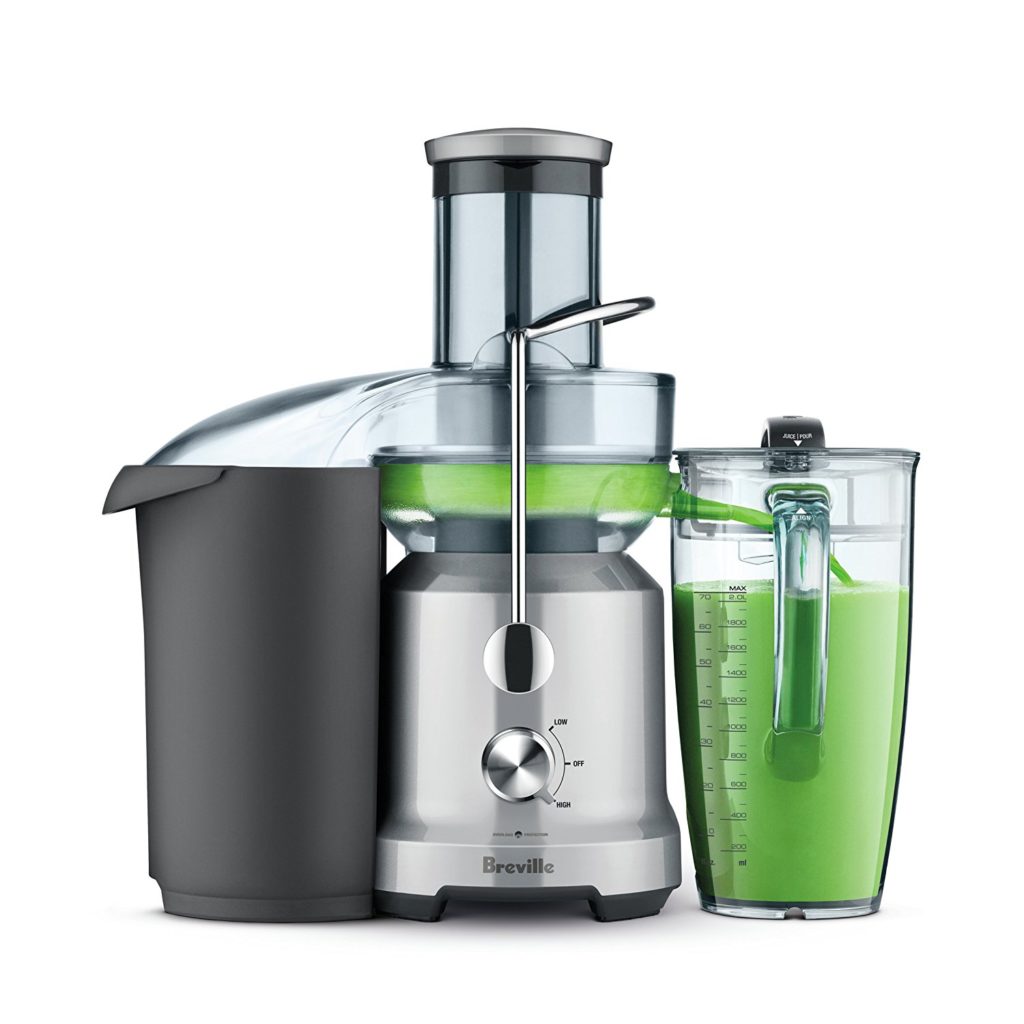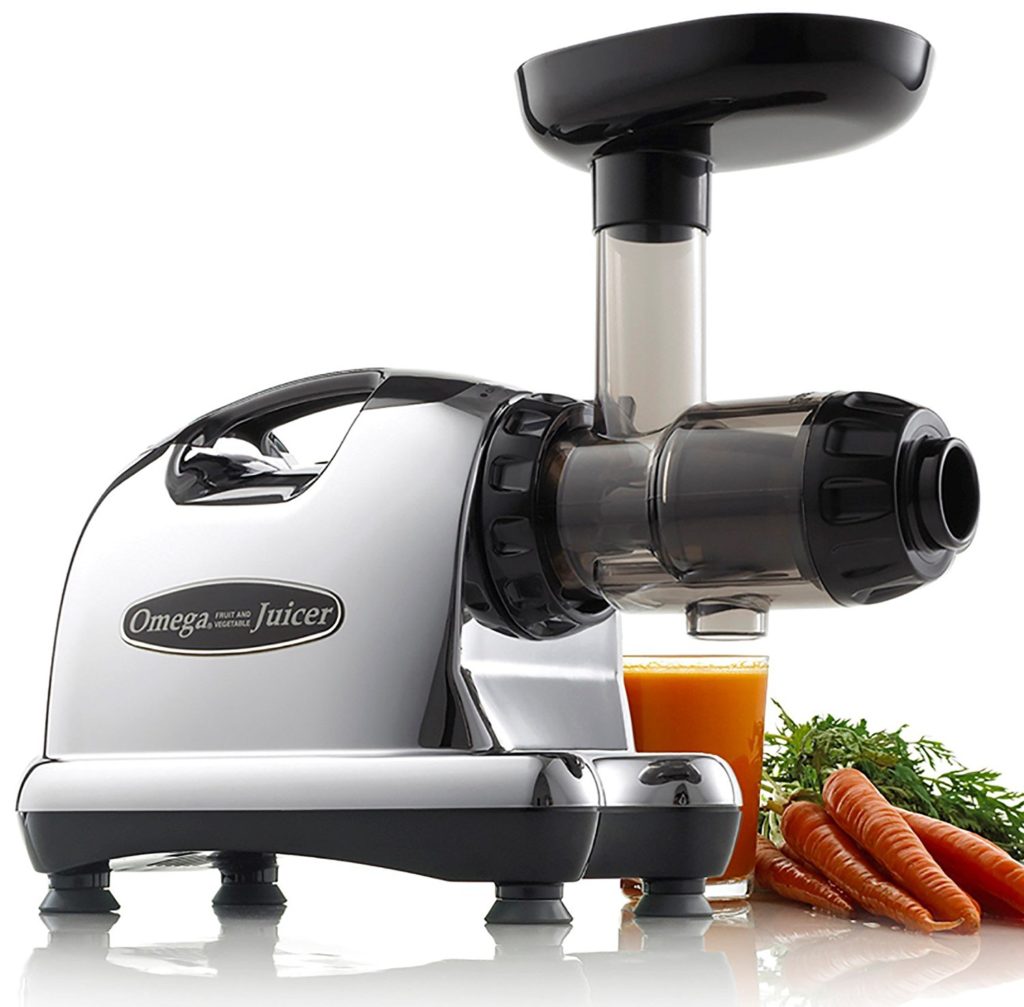Juicing is one of the popular and easiest ways to introduce a variety of fruits and vegetables into your daily diet. It provides an instant nutrient hit, helps detoxify the body, and boosts immunity among other incredible health benefits. However, juicers aren’t created equal. Most juicing machines fall into one of these two basic categories: centrifugal and cold press.
So which juicer should you invest in? It can be quite overwhelming and confusing trying to figure out the best type of juicer to purchase to meet your needs. To add to the confusion, manufacturers of both juicers often make exaggerated claims about the benefits of their products. We’ve put together a comprehensive guide to help you gain clarity about the type of juicer to buy.
How Does a Centrifugal Juicer Work?
A centrifugal juicer uses a spinning metal blade that rotates fast against a sieve or mesh filter to separate the juice from the flesh of the produce. The liquid content then exits the unit into a container while the pulp is channeled into a different container. The fast spinning blades can cut into large pieces of produce.

Distinctive features
How Does a Cold Press Juicer Work?
Cold press juicers use slow-turning screws or gears to crush fruits and vegetables gently against a screen before pressing them to squeeze the juice out. The lower operating speeds result in less production of foam in the juice. You’ll need to chop fruits and vegetables into smaller pieces before juicing them with a cold press juicer.

Distinctive Features
The Differences between a Centrifugal Juicer and a Cold Press Juicer
Now that you have a better understanding of what a centrifugal juicer and cold press juicer is, you certainly have a good idea of the differences between the two juicer types. The table below summarizes their main differences.
| Centrifugal | Cold-press | |
|---|---|---|
| Speed | Fast (1650-15,000 RPM) | Slow (around 70-80 RPM) |
| What it can juice | Several fruits and vegetables, but not leafy greens or nuts | Most fruits and vegetables, including nuts and leafy greens |
| Price | Affordable | Costlier |
| Prep work | You can feed large chunks into the feeding tube for processing | You have to cut produce into small pieces |
| Noise level | Loud | Quiet |
| Maintenance | Easy to clean | Comes with more intricate parts, hence takes longer to clean |
Nutritional Content
The fast-spinning blade of a centrifugal juicer generates heat, which destroys some enzymes in the ingredients you’re juicing and oxidizes nutrients thus degrading their quality. A cold press juicer operates at lower speeds than a centrifugal juicer. The lower speed keeps the generation of heat to a minimum, preserving more nutrients and beneficial enzymes. Several nutritional tests have been conducted to verify the higher nutritional value of cold pressed juice.
Good Nature, a juicing equipment company, carried out lab tests on different vegetable juices extracted by a centrifugal juicer and cold press juicer. They tested for the vitamin A content in carrot juice, vitamin B9 in beet juice, and vitamin C in kale juice.
- Carrot test — The cold press juicer yielded carrot juice with 10,000 IU of vitamin C per 100 grams as opposed to 8,500 IU/100g in the centrifugal carrot juice. The vitamin A content in the cold-pressed juice was 15% higher than that of the centrifugal juice.
- Beet test — The cold-pressed beet juice had 31mcg of vitamin B9 per 100g compared to the 26mcg/100g in the juice obtained from the centrifugal juicer, which was 16.2% less vitamin B9 than its cold pressed counterpart.
- Kale test — The vitamin C in cold-pressed kale juice was 23mg/100g, representing 13.1% more vitamin C than the 20mg/100g found in centrifugal kale juice.
The cold-pressed juicer yielded higher nutritional content than the centrifugal juicer across all the three tests. That shows cold press juicing is more effective at preserving the nutritional value of produce.
How Long the Juice Keeps For
Many variables affect the shelf life of fresh juice, such as the type of produce used and the method of storage. However, centrifugal juicers incorporate air into the juice, so the juice discolors faster because of oxidation. It’s best to drink juice made by centrifugal models as soon as possible. Cold press juices tend to have a longer shelf life hence can be refrigerated. Cold pressed vegetable juices can last from 12-24 hours whereas fruit juices can last for 24-48 hours.
Juice Yield
The juice output from centrifugal juicers is comparable to that from cold press models on most hard produce. However, centrifugal models produce significantly less juice with soft juicy fruits, wheatgrass, and leafy greens. For instance, when you juice berries with a centrifugal juicer, most of the juice will remain in the leftover pulp.
So Should You Buy a Centrifugal Juicer or Cold Press Juicer?
With all the information you’ve gained about centrifugal and cold press juicers, you may be wondering about which juicer to pick. The best type of juicer to invest in is the one that fits your lifestyle best.
A centrifugal juicer will be your best if:
A cold press juicer will suit you perfectly if:
As you’ve realized, centrifugal juicers and cold press juicers each have their pros and cons. The juicer you should select depends on your personal preference, lifestyle needs, and budget. Whatever the type of juicer you choose, you’ll be making a positive difference to your health provided you keep up with your new juicing habit. So let’s get juicing!
